-
 Bitcoin
Bitcoin $103,303.7588
-0.27% -
 Ethereum
Ethereum $2,589.4555
1.00% -
 Tether USDt
Tether USDt $1.0001
-0.01% -
 XRP
XRP $2.5604
0.85% -
 BNB
BNB $652.5111
-0.30% -
 Solana
Solana $176.7230
0.96% -
 USDC
USDC $1.0000
-0.01% -
 Dogecoin
Dogecoin $0.2321
0.11% -
 Cardano
Cardano $0.8037
-0.02% -
 TRON
TRON $0.2764
3.12% -
 Sui
Sui $3.8923
-2.65% -
 Chainlink
Chainlink $16.9417
0.69% -
 Avalanche
Avalanche $25.3335
2.02% -
 Stellar
Stellar $0.3063
-0.17% -
 Shiba Inu
Shiba Inu $0.0...01575
0.64% -
 Hedera
Hedera $0.2061
-1.86% -
 Hyperliquid
Hyperliquid $25.5119
0.81% -
 Toncoin
Toncoin $3.2660
-0.64% -
 UNUS SED LEO
UNUS SED LEO $8.8110
2.17% -
 Pi
Pi $1.1387
0.42% -
 Bitcoin Cash
Bitcoin Cash $403.6060
-0.04% -
 Polkadot
Polkadot $5.0058
-0.48% -
 Litecoin
Litecoin $99.7399
-1.19% -
 Monero
Monero $344.8592
2.30% -
 Pepe
Pepe $0.0...01382
-2.36% -
 Bitget Token
Bitget Token $4.7243
-0.59% -
 Dai
Dai $1.0000
-0.01% -
 Ethena USDe
Ethena USDe $1.0007
0.00% -
 Uniswap
Uniswap $6.6285
-3.14% -
 Bittensor
Bittensor $451.1895
-1.47%
What is the role of private keys in encrypted communications?
Private keys, crucial for cryptocurrency security, act as digital signatures verifying transaction authenticity and enabling encrypted communication via asymmetric cryptography; their loss is irreversible.
Mar 16, 2025 at 09:30 am
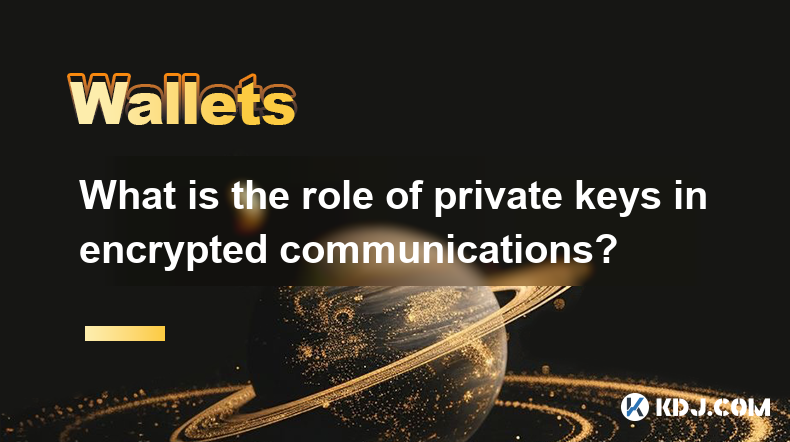
Key Points:
- Private keys are the foundation of secure cryptocurrency transactions and communication. They are crucial for proving ownership and authorizing actions within a blockchain network.
- Private keys function as digital signatures, verifying the authenticity and integrity of messages and transactions. They operate under the principles of asymmetric cryptography.
- The security of private keys is paramount. Loss or compromise of a private key leads to irreversible loss of access to associated cryptocurrency holdings and potential communication compromise.
- Secure storage and management of private keys is critical, involving various methods like hardware wallets, software wallets, and paper wallets, each with its own strengths and weaknesses.
- Understanding the different types of private keys and their implementation within specific cryptocurrencies helps users navigate the intricacies of secure digital asset management.
What is the role of private keys in encrypted communications?
Private keys are fundamental to secure communication and transactions within the cryptocurrency ecosystem. They act as the ultimate proof of ownership and control over digital assets. Unlike public keys, which are shared openly, private keys must remain absolutely confidential. Revealing your private key to anyone renders your cryptocurrency vulnerable to theft.
In the context of encrypted communication, private keys are instrumental in verifying the authenticity and integrity of messages. They underpin the cryptographic algorithms that ensure only the intended recipient can decipher the message. This process relies on asymmetric cryptography, where a pair of keys – a public key and a private key – are mathematically linked.
Asymmetric cryptography utilizes two distinct keys: a public key and a private key. The public key can be shared widely, while the private key must be kept secret. When someone wants to send you a secure message, they encrypt it using your public key. Only your private key can decrypt and reveal the message's contents. This ensures confidentiality.
The use of digital signatures leverages the properties of private keys to authenticate transactions and messages. When you sign a transaction, your private key is used to create a unique digital signature. This signature proves that you authorized the transaction, and its authenticity can be verified by anyone using your public key. This prevents forgery and ensures transaction integrity.
The security of your private key is paramount. If your private key is compromised, an attacker can impersonate you, steal your funds, and potentially intercept or manipulate your encrypted communications. This underscores the critical importance of secure key management practices.
Several methods exist for securing private keys. Hardware wallets offer the highest level of security, storing your private keys offline on a dedicated device. Software wallets, while convenient, require robust security measures to prevent unauthorized access. Paper wallets involve printing your private keys and storing them securely offline. Each method presents a different trade-off between security and convenience.
Understanding the nuances of private key management is crucial for anyone involved with cryptocurrencies. Different cryptocurrencies may employ different key formats and security protocols. For instance, Bitcoin uses elliptic curve cryptography (ECC), while other cryptocurrencies may utilize different algorithms. Familiarity with these differences is crucial for maintaining secure control over your assets.
The implementation of private keys varies across different blockchain networks and cryptocurrencies. Some systems may utilize hierarchical deterministic (HD) wallets, allowing for the derivation of multiple keys from a single seed phrase. This enhances security and convenience, enabling users to manage multiple accounts with a single master key.
The concept of multi-signature wallets provides another layer of security. These wallets require multiple private keys to authorize a transaction, mitigating the risk of a single key compromise. This adds redundancy and makes unauthorized access more difficult.
Private keys are not directly visible to the user in most wallet interfaces. Instead, they are usually represented by a seed phrase, a mnemonic code consisting of a series of words. This seed phrase is used to derive the actual private key, enhancing security and making it easier for users to manage their keys.
The secure handling and storage of private keys are fundamental to the overall security of cryptocurrency transactions and communications. Losing or compromising your private key is tantamount to losing access to your cryptocurrency, with no recourse for recovery. Therefore, understanding and implementing best practices for private key management is essential.
Frequently Asked Questions:
Q: What happens if I lose my private key?
A: Losing your private key means irreversible loss of access to the cryptocurrency associated with that key. There's no way to recover it.
Q: Can I share my private key with someone else?
A: No, never share your private key with anyone. Doing so grants them complete control over your cryptocurrency.
Q: What is a seed phrase, and why is it important?
A: A seed phrase is a mnemonic code used to derive your private keys. It's crucial to keep it safe and secure as it provides access to your funds.
Q: Are hardware wallets better than software wallets?
A: Hardware wallets generally offer superior security because they store your private keys offline, reducing the risk of hacking.
Q: How do I choose a secure wallet for my private keys?
A: Research reputable wallet providers, consider your security needs (hardware vs. software), and read reviews before choosing a wallet. Look for wallets with strong security features and a good reputation.
Q: What are the risks associated with storing private keys online?
A: Storing private keys online significantly increases the risk of theft through hacking or malware. Offline storage is significantly safer.
Disclaimer:info@kdj.com
The information provided is not trading advice. kdj.com does not assume any responsibility for any investments made based on the information provided in this article. Cryptocurrencies are highly volatile and it is highly recommended that you invest with caution after thorough research!
If you believe that the content used on this website infringes your copyright, please contact us immediately (info@kdj.com) and we will delete it promptly.
- Bitget Wallet integrates Reserve's Decentralized Token Folios (DTFs), offering simplified crypto portfolio access
- 2025-05-14 23:25:12
- Smart contracts are like crypto's cash coders—program them right, and they churn out profits with no middleman.
- 2025-05-14 23:25:12
- Staking’s Like Joining a Crypto Cash Crew—Lock Your Coins
- 2025-05-14 23:20:13
- A Bull Market's Like a Crypto Block Party - Jump in Early, Scoop Profits, and Bounce Before the Dip Crashes the Vibe
- 2025-05-14 23:20:13
- Altcoins Are Like Crypto's Hidden Gold Veins
- 2025-05-14 23:15:12
- The Grass (GRASS) crypto token price continued surging this week
- 2025-05-14 23:15:12
Related knowledge
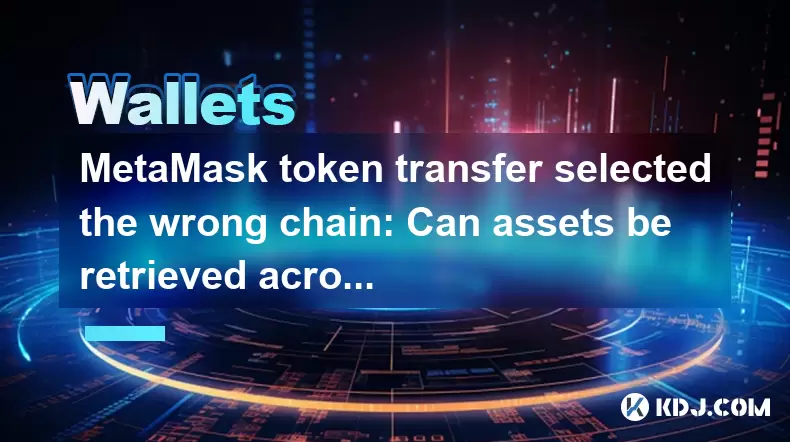
MetaMask token transfer selected the wrong chain: Can assets be retrieved across chains?
May 14,2025 at 08:42pm
When using MetaMask to transfer tokens, selecting the wrong chain can be a stressful mistake. Many users wonder if their assets can be retrieved across chains after such an error. In this article, we will delve into the intricacies of cross-chain asset retrieval, the steps you can take if you find yourself in this situation, and the potential outcomes. ...
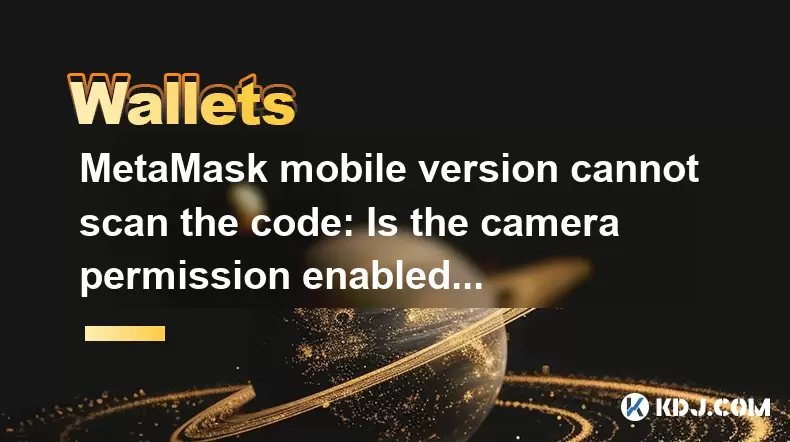
MetaMask mobile version cannot scan the code: Is the camera permission enabled?
May 14,2025 at 07:00pm
Title: MetaMask Mobile Version Cannot Scan the Code: Is the Camera Permission Enabled? When using the MetaMask mobile application, one of the common issues users encounter is the inability to scan QR codes. This problem often stems from camera permission issues on the mobile device. This article delves into the reasons behind this issue, how to check if...
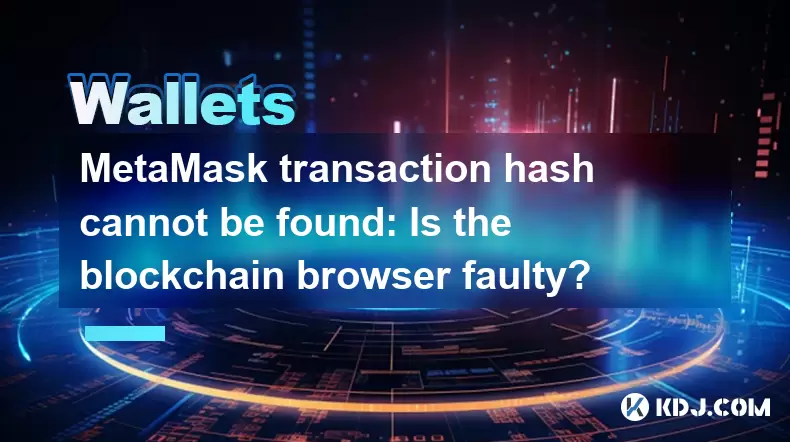
MetaMask transaction hash cannot be found: Is the blockchain browser faulty?
May 14,2025 at 07:42pm
When users encounter the issue where a MetaMask transaction hash cannot be found, it often leads to confusion and frustration. This problem can arise due to various reasons, and it's essential to understand that it's not always a fault of the blockchain browser. In this article, we will delve into the possible reasons behind this issue, how to troublesh...
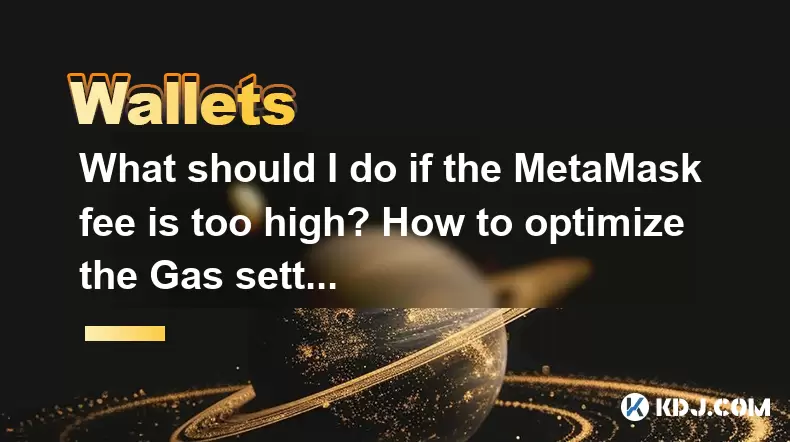
What should I do if the MetaMask fee is too high? How to optimize the Gas settings?
May 14,2025 at 07:21pm
If you find that the MetaMask fee is too high, there are several strategies you can use to optimize your Gas settings and reduce costs. Understanding how Gas works and how to adjust your settings can help you save money on transaction fees. Let's dive into the details of how you can manage and optimize your Gas settings effectively. Understanding Gas an...
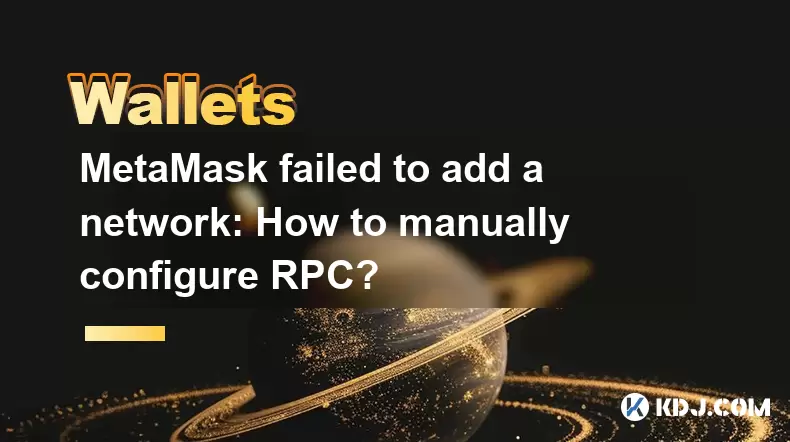
MetaMask failed to add a network: How to manually configure RPC?
May 14,2025 at 06:43pm
Introduction to MetaMask and RPC ConfigurationMetaMask is a popular cryptocurrency wallet that allows users to interact with the Ethereum blockchain and other compatible networks. One of the essential features of MetaMask is the ability to add custom networks, which can be done through the use of Remote Procedure Call (RPC). However, users sometimes enc...
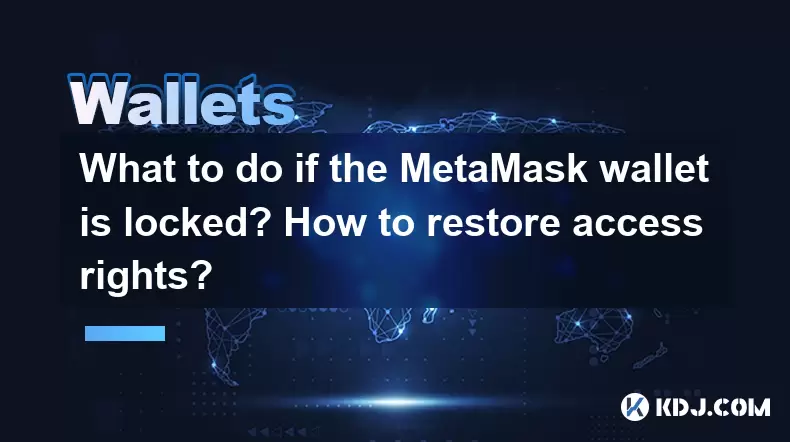
What to do if the MetaMask wallet is locked? How to restore access rights?
May 14,2025 at 11:29pm
If you find yourself locked out of your MetaMask wallet, it can be a stressful situation. However, there are steps you can take to restore access to your wallet and secure your digital assets. This article will guide you through the process of unlocking your MetaMask wallet and regaining control of your cryptocurrencies. Understanding Why Your MetaMask ...

MetaMask token transfer selected the wrong chain: Can assets be retrieved across chains?
May 14,2025 at 08:42pm
When using MetaMask to transfer tokens, selecting the wrong chain can be a stressful mistake. Many users wonder if their assets can be retrieved across chains after such an error. In this article, we will delve into the intricacies of cross-chain asset retrieval, the steps you can take if you find yourself in this situation, and the potential outcomes. ...

MetaMask mobile version cannot scan the code: Is the camera permission enabled?
May 14,2025 at 07:00pm
Title: MetaMask Mobile Version Cannot Scan the Code: Is the Camera Permission Enabled? When using the MetaMask mobile application, one of the common issues users encounter is the inability to scan QR codes. This problem often stems from camera permission issues on the mobile device. This article delves into the reasons behind this issue, how to check if...

MetaMask transaction hash cannot be found: Is the blockchain browser faulty?
May 14,2025 at 07:42pm
When users encounter the issue where a MetaMask transaction hash cannot be found, it often leads to confusion and frustration. This problem can arise due to various reasons, and it's essential to understand that it's not always a fault of the blockchain browser. In this article, we will delve into the possible reasons behind this issue, how to troublesh...

What should I do if the MetaMask fee is too high? How to optimize the Gas settings?
May 14,2025 at 07:21pm
If you find that the MetaMask fee is too high, there are several strategies you can use to optimize your Gas settings and reduce costs. Understanding how Gas works and how to adjust your settings can help you save money on transaction fees. Let's dive into the details of how you can manage and optimize your Gas settings effectively. Understanding Gas an...

MetaMask failed to add a network: How to manually configure RPC?
May 14,2025 at 06:43pm
Introduction to MetaMask and RPC ConfigurationMetaMask is a popular cryptocurrency wallet that allows users to interact with the Ethereum blockchain and other compatible networks. One of the essential features of MetaMask is the ability to add custom networks, which can be done through the use of Remote Procedure Call (RPC). However, users sometimes enc...

What to do if the MetaMask wallet is locked? How to restore access rights?
May 14,2025 at 11:29pm
If you find yourself locked out of your MetaMask wallet, it can be a stressful situation. However, there are steps you can take to restore access to your wallet and secure your digital assets. This article will guide you through the process of unlocking your MetaMask wallet and regaining control of your cryptocurrencies. Understanding Why Your MetaMask ...
See all articles





















![[Market 5.13] BTC continues to play music and dance? #btc #ETH #sol #doge [Market 5.13] BTC continues to play music and dance? #btc #ETH #sol #doge](/uploads/2025/05/14/cryptocurrencies-news/videos/market-btc-continues-play-music-dance-btc-eth-sol-doge/image_500_375.webp)




![[Ronnie Trading Guide]-2025.5.14-Notice: Bitcoin will test the previous high soon~ wait and see~ [Ronnie Trading Guide]-2025.5.14-Notice: Bitcoin will test the previous high soon~ wait and see~](/uploads/2025/05/14/cryptocurrencies-news/videos/ronnie-trading-guidenotice-bitcoin-test-previous-wait/image_500_375.webp)





























































